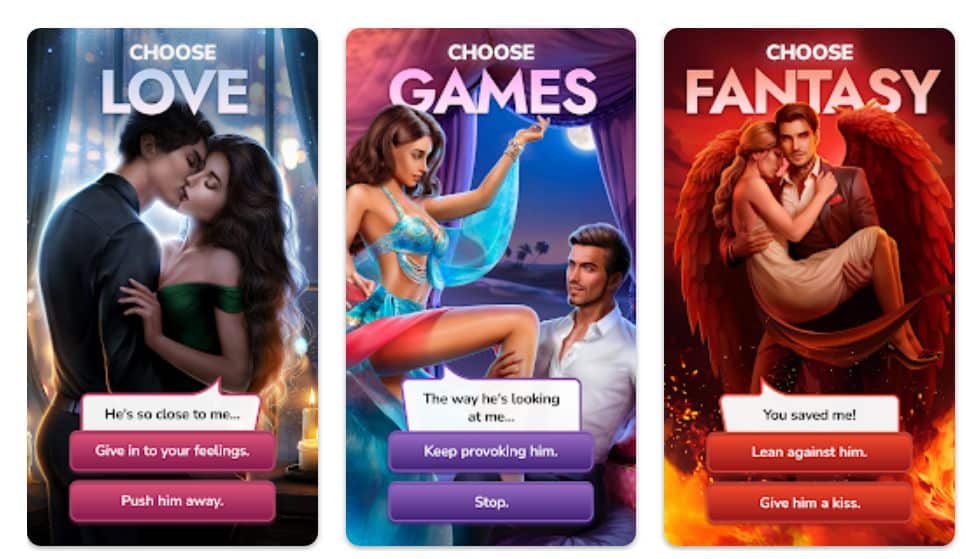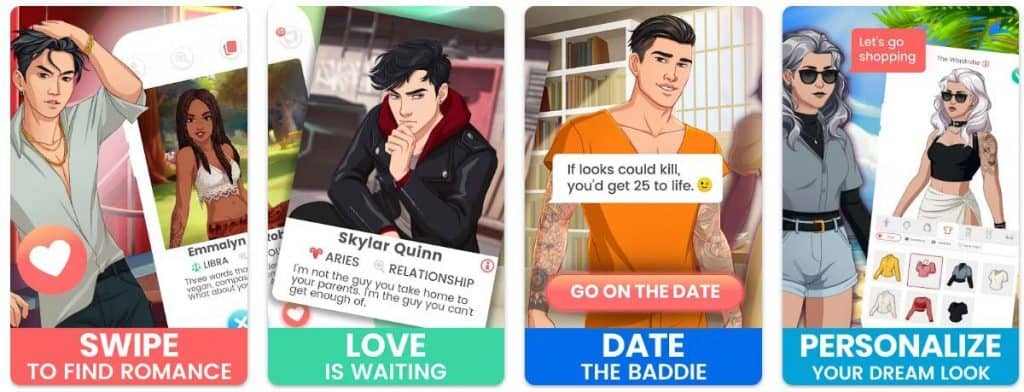Romance Club stands as a significant cultural phenomenon within the realm of the Internet. As of 2022, this collection of interactive short stories has amassed an impressive 10 million downloads on the Google Play platform alone. The impact of the apps extends far beyond mere downloads; enthusiasts contribute by crafting fanfictions, producing TikToks, assembling encyclopedic knowledge, and engaging in fervent debates on dedicated forums.

The spectrum of sentiments toward “Romance Club” is remarkably diverse. While some ardently cherish these tales, eagerly awaiting each new update, others take pleasure in jesting about the stories’ ingenuous plots and characters reminiscent of the covers of sensationalist novels. In our conversation with Arina German, one of the scriptwriters for the application (her surname has been altered as per her request), we delved into the intricate process behind the creation of these novels. Our exploration revealed the reasons behind the widespread popularity of “Romance Club,” even though a certain stigma may still linger around the affection it garners.

At its core, “Romance Club” constitutes a collection of interactive romantic narratives. Users are granted the ability to shape the course of events by making choices that steer the plot. The culmination of each story hinges upon the user’s actions, resulting in an engaging and personalized reading experience. While romance indeed holds significance, it does not exclusively define the content. The narratives span a range of genres, encompassing detective stories, tales of horror, adventurous exploits, and flights of fantasy.

In recent times, a significant surge in popularity has propelled visual novels into the spotlight, creating a digital storytelling phenomenon comparable to modern authors like J.K. Rowling, Nicholas Sparks or Danielle Steel. Apps such as Lovelink and Romance Club, with massive followings on platforms like TikTok, have not only captured the attention of a younger audience but have also translated into substantial revenue generation.
Despite the timeless nature of their plots, these narratives are often crafted by freelance writers on various gig platforms. Notably, the English-speaking world has witnessed the rise of “story factories” in China, churning out content for this genre with remarkable consistency.
This landscape presents an opportune field for the implementation of Generative Machine Learning (GenML). Buildbox has recently unveiled a no-code framework specifically designed for creating such novels. Employing AI, this tool generates stories, tailors story arcs based on player choices, and even produces accompanying background visuals and music. The end product can then be seamlessly published on app stores, bridging the gap between narrative art and technology.
Beyond the realm of entertainment, the affinity of younger generations for novels can be extended to other domains. A case in point is Mschf’s innovative release, a novel that transforms the mundane task of filling out tax forms into an engaging dating simulator experience. This suggests that a diverse range of activities, including education and learning, could potentially be repackaged into novel formats featuring charming anime characters, appealing to the preferences of this tech-savvy demographic.
Read more about AI:
Read More: mpost.io









 Bitcoin
Bitcoin  Ethereum
Ethereum  Tether
Tether  Solana
Solana  XRP
XRP  Dogecoin
Dogecoin  USDC
USDC  Cardano
Cardano  Lido Staked Ether
Lido Staked Ether  Avalanche
Avalanche  TRON
TRON  Toncoin
Toncoin  Stellar
Stellar  Wrapped stETH
Wrapped stETH  Shiba Inu
Shiba Inu  Wrapped Bitcoin
Wrapped Bitcoin  Polkadot
Polkadot  Chainlink
Chainlink  WETH
WETH  Bitcoin Cash
Bitcoin Cash  Sui
Sui  Pepe
Pepe  NEAR Protocol
NEAR Protocol  LEO Token
LEO Token  Uniswap
Uniswap  Litecoin
Litecoin  Aptos
Aptos  Wrapped eETH
Wrapped eETH  Hedera
Hedera  Internet Computer
Internet Computer  USDS
USDS  Cronos
Cronos  Ethereum Classic
Ethereum Classic  POL (ex-MATIC)
POL (ex-MATIC)  Bittensor
Bittensor  Render
Render  Ethena USDe
Ethena USDe  Artificial Superintelligence Alliance
Artificial Superintelligence Alliance  Arbitrum
Arbitrum  Filecoin
Filecoin  Celestia
Celestia  Bonk
Bonk  Dai
Dai  Stacks
Stacks  WhiteBIT Coin
WhiteBIT Coin  Cosmos Hub
Cosmos Hub  Immutable
Immutable